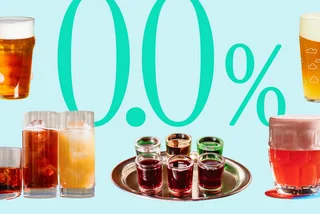The Russian invasion of Ukraine is pushing pre-existing inflationary pressures from bad to worse, and Czech beer, a symbol of Czech identity at home and abroad, is already being affected.
From next month, Plzeňský Prazdroj will increase the price of a half-liter of draft beer by CZK 1. The price rise will affect all of the company’s beer brands: Pilsner Urquell, Radegast, Gambrinus, Vekopopovický Kozel, and Birell, for barrel and tank sales.
Recent months have seen spiraling energy prices drive up breweries’ input costs: in January, electricity prices rose 18.8 percent year-on-year, while gas prices rose 21.5 percent.
“In recent months, we’ve seen a dramatic increase in input prices, especially energy, which accounts for a significant portion of production and distribution costs,” said Zdeněk Kovář, a spokesperson for Plzeňský Prazdroj.
But the company is also affected by various other price increases. "The price of inputs directly related to the hospitality industry is also rising significantly, including tap technology, glass, and other equipment provided by breweries to pubs.” Other price rises are for packaging costs as well as water and barley used during the brewing process.
Yet despite the negative forecast for the industry, Plzeňský Prazdroj isn’t shying away from taking a principled stance on the war in Ukraine.
The company has announced that it will no longer accept any orders from Russia and Belarus. Russia was previously one of its biggest international markets, with sales amounting to tens of thousands of hectoliters per year.
The crisis in Ukraine is meanwhile set to send energy prices spiraling even higher, as buyers stockpile resources over fears that EU sanctions could eventually target Russia’s natural resources. Yet price rises in the beer industry have so far been the result of pre-existing inflation and long-term market forces.
“We completely reject any connection with the conflict in Ukraine, Kovář told ČTK.
Plzeňský Prazdroj isn’t the first Czech brewer to raise prices. Staropramen raised prices for some beers by around six percent in January, while Budvar made its products three percent more expensive in the same month.
Micro-breweries have been even worse affected by inflation. Prior to the outbreak of war in Ukraine and deepened global financial chaos, Michal Voldřich from the Bohemian-Moravian Association of Micro-Breweries predicted price rises of around ten percent for small brewers by this summer.
It's feared the higher price of beer in pubs, now reaching an average of around CZK 50 per half-liter, will result in more Czechs buying beer in the store and drinking it at home. This change would put a significant dent in the Czech Republic’s international reputation as a nation where pub culture is alive and well.












 Reading time: 2 minutes
Reading time: 2 minutes 

























